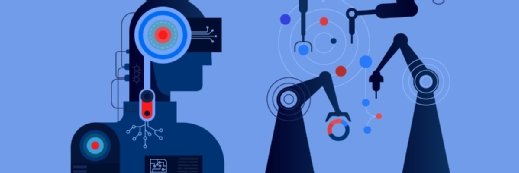
mast3r - stock.adobe.com
App Uses Artificial Intelligence Algorithm to Predict Alzheimer’s
Researchers are developing an app that will use an artificial intelligence algorithm to catch early signs of Alzheimer’s disease.
Researchers at Michigan State University are developing artificial intelligence technology that will use an algorithm to scan speech and vocabulary patterns in order to catch early signs of Alzheimer’s disease.
Jiayu Zhou, an associate professor in MSU's College of Engineering, is leading the project’s artificial intelligence development. MSU is also working in collaboration with Oregon Health & Science University and Weill Cornell Medicine. The project aims to code an easily usable and accessible smartphone app to help assess the necessity of follow-up medical diagnoses.
"Alzheimer's is tough to deal with and it's very easy to confuse its early stage, mild cognitive impairment, with normal cognitive decline as we're getting older," Zhou, who leads a research group in the Department of Computer Science and Engineering said in a press release. "It's only when it gets worse that we realize what's going on and, by that time, it's too late."
Currently, there is no cure for Alzheimer’s disease. However, early detection could assist doctors and researchers in the development of treatment to slow or halt the disease before irreparable damage occurs.
According to Zhou, AI can be more efficient and reliable in detecting subtle changes in speech and behavior than human observers. Additionally, implementing artificial intelligence into an app would make getting medical diagnostics more affordable and accessible, eliminating some care disparities.
Zhou and his team have conducted preliminary tests of the app with results showing it is as accurate as MRIs in detecting early warning signs. Data for these tests were collected by collaborators at Oregon Health & Science University, who are conducting a clinical trial studying how conversations could possibly act as therapeutic intervention for dementia or early Alzheimer’s.
The interviews from the Oregon Health & Science University trial were transcribed and the artificial intelligence algorithm was able to review the text and examine the variety of words participants were using in order to assess their cognitive state. The team’s success with the data made them accelerate artificial intelligence assessment.
"If we want to develop an app that everyone can use, we don't want to have people talking to it for hours," Zhou said. "We need to develop an efficient strategy so we can navigate the conversation and get the data we need as quickly as possible, within 5 to 10 minutes."
While the team already had a prototype of the app that interviewed the users and recorded their audio responses, researchers had to refine the process. This meant further developing the questions the app asked, and how it asked them, to get the information from the user quicker.
Secondly, the team wanted to bring the data beyond just linguistic patterns to assist the AI in making an assessment.
“For example, the app will also examine acoustic signals of the conversation and it may also further leverage video to analyze facial expressions along with the words a user is saying. The team is also working on integrating behavior sensors that would track things like how much sleep a person is getting to supplement the app's interview language analysis,” Michigan State University said in a press release.
Once the artificial intelligence tool reviewed all the data, the user would receive a risk score regarding the likelihood she is showing signs of dementia. Despite this, Zhou explained it would be a doctor making the final diagnosis, not a computer.
However, the AI app would also help close the gap in care disparities by allowing individuals to have affordable self-assessments. Additionally, the app would encourage patient engagement and early intervention.
"You cannot replace that human interaction," Zhou said. "The final assessment will be done by a patient's physician. But if you have doubts and the app says you're at a higher risk, you don't have to wait. You can visit a clinician and take the next steps."




